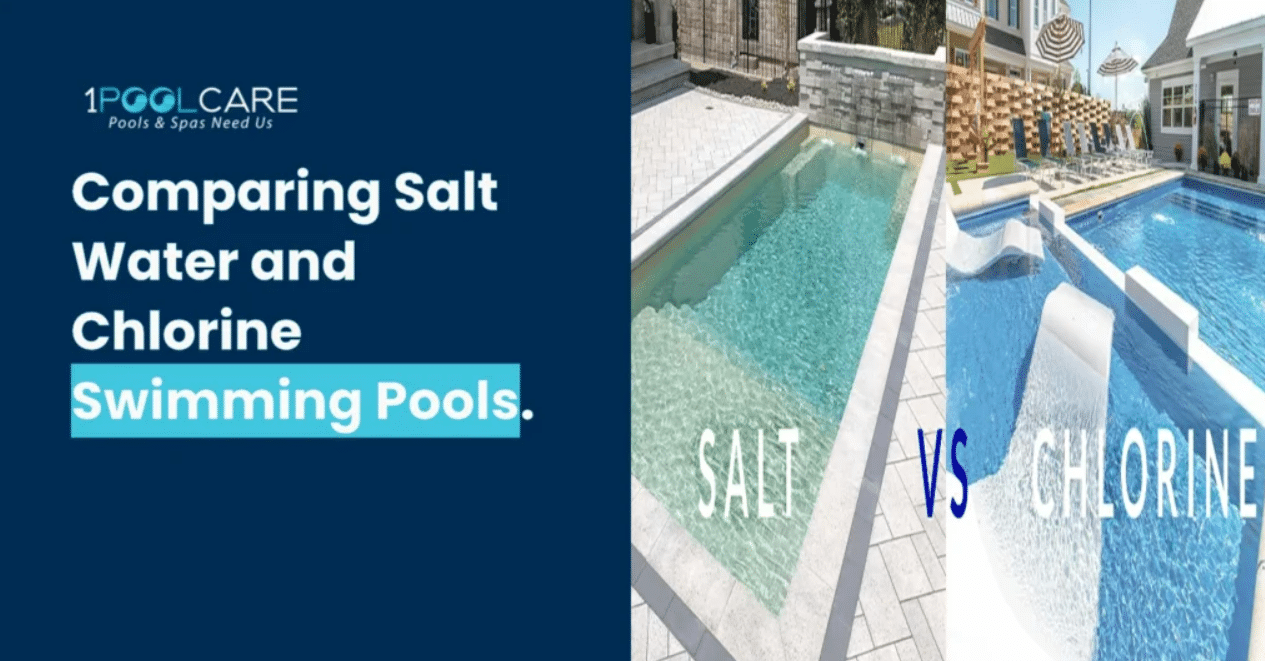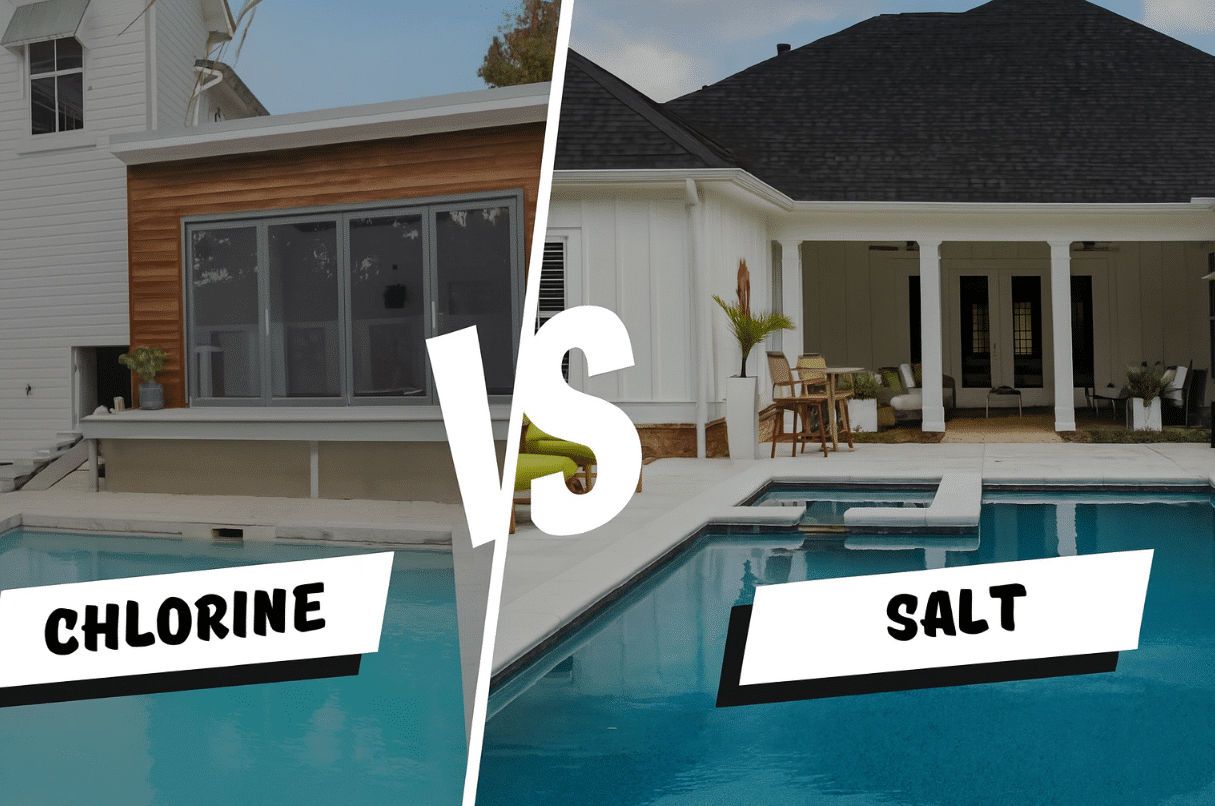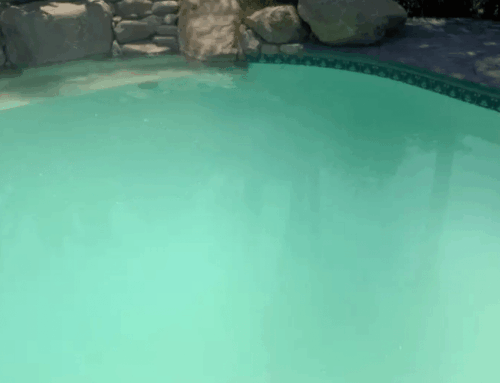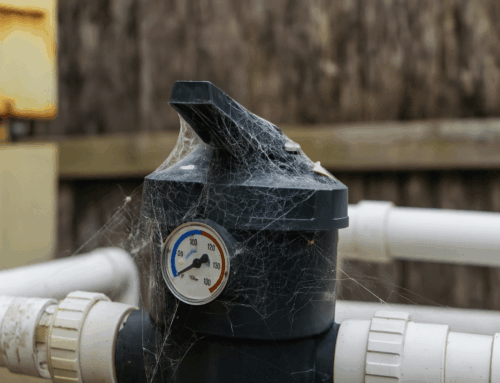
salt vs chlorine swimming pool
Choosing between salt water and chlorine swimming pools is a major decision for any pool owner. Many homeowners in Australia want to understand the key differences, including ongoing maintenance, upfront costs, and long-term health and comfort benefits. This guide compares both systems to help you make an informed choice about which pool type to build or convert to.
How Do Salt Water Pools Work?
Although many people assume salt water pools are free of chlorine, that’s not accurate. In reality, salt water pools do contain chlorine, but it is produced automatically through a salt water chlorinator. This device uses a process called electrolysis to convert pool salt into sanitising chlorine, which keeps the pool water safe and clean.
This means swimmers benefit from chlorinated water, but without the need to add chlorine manually or manage chlorine tablets. Instead, the salt chlorine generator consistently maintains chlorine levels without daily intervention.
Salt Water Pools Require Less Maintenance
One of the biggest advantages of saltwater swimming pools is that they require less maintenance than their chlorine counterparts. This is because the system is designed to automate chlorine production, reducing the frequency of testing and chemical adjustments.
In contrast, chlorine pools require more ongoing chemical management, including dosing with chlorine tablets, shock treatments, and monitoring pH balance and stabiliser levels. Over time, this makes chlorine pools more labour-intensive.
Chlorine Pools and Chemical Irritation
A common complaint among many pool owners is the irritation caused by chlorine. Chlorine pools can produce chloramines, a by product formed when chlorine binds with contaminants like body oils and sweat. Chloramines are what cause the strong “chlorine smell” and are responsible for eye and skin irritation.
On the other hand, salt water pools can kill chloramines more efficiently, resulting in a safer swimming environment and a more comfortable swim. For people with sensitive skin or allergies, this difference can be a game-changer.
Salt Water is Gentler on the Skin and Hair
Because the salt content in saltwater pools is far lower than that of seawater, the result is softer water that feels gentle on the skin and hair. This is a key reason why saltwater pool systems are preferred by families with young children or anyone prone to skin irritation.
This softer water also contributes to a more enjoyable swimming experience, which is why many people say a saltwater pool is easier to swim in and recover from.
Costs: Initial Investment vs Ongoing Maintenance
The initial cost of installing a saltwater pool is generally higher than a chlorine pool. This is due to the purchase and installation of a salt water chlorinator and the associated electrical components. If you’re installing a new pool, expect a larger upfront spend.
That said, saltwater pools are more affordable over time. One key reason is that salt is cheaper than chlorine, reducing ongoing costs. Once installed, the salt chlorine generator reduces the need for purchasing and handling chemicals regularly.
In contrast, chlorine pools are cheaper to set up initially, but they come with higher ongoing maintenance costs. Chlorine pools are generally cheaper to set up initially than saltwater pools. The regular purchase of chemical chlorine, stabilisers, and shock treatments can add up quickly.
Maintenance Comparison: Salt vs Chlorine
| Maintenance Task | Saltwater Pool | Chlorine Pool |
|---|---|---|
| Chlorine dosing | Automated via salt cell | Manual application required |
| Weekly chemical checks | Basic pH and salt testing | Full panel testing and adjustment |
| Salt/chlorine replenishment | Top up salt occasionally | Frequent chlorine additions |
| Cost of chemicals | Lower (salt is cheap) | Higher (chlorine prices fluctuate) |
| Chloramine management | Efficiently handled by salt systems | Can accumulate without frequent shocks |
| Skin and eye irritation | Less likely | Common in improperly balanced pools |
Key Benefits of Saltwater Pools
- Less harsh water: Saltwater is gentler on eyes, hair, and skin
- Lower chemical exposure: Reduces the need to handle chemical chlorine
- Automated chlorine production: Leads to consistently maintained levels
- Fewer chloramines: Better water quality and less irritation
- Reduced algae growth: Stable chlorine levels help in preventing algae growth
Primary Benefits of Chlorine Pools
- Lower upfront cost: Ideal for pool owners on a tighter budget
- Easy to find parts and chemicals: Readily available in most hardware and pool shops
- Quick installation: Particularly appealing for older pool conversions or small systems
Chemical Considerations
Although chlorine is found in both pool types, the difference lies in how it is introduced to the water. In saltwater systems, chlorine is generated gradually and steadily. In traditional chlorine pools, chlorine is added manually and often in higher concentrations.
This means that saltwater pools usually have more consistent chlorine levels, reducing the risk of water imbalances. It also lowers the chances of chlorine gas formation or overdosing, both of which are possible in chlorine pool systems.
The Role of Salt in Pool Sanitisation
What does salt do in a pool? Quite simply, it fuels the sanitisation system. Saltwater chlorinators rely on dissolved pool salt to generate chlorine. Once the salt passes through the salt cell, the system converts it into hypochlorous acid, the agent responsible for killing bacteria and sanitising the water.
Over time, you will need to add salt to the pool to maintain the correct salt levels, especially after heavy rain, backwashing, or splash-out.
Pool Owners’ Considerations When Choosing
When deciding between a salt pool and a traditional chlorinated pool, the decision often comes down to:
- Your tolerance for regular chemical handling
- Budget for initial investment and ongoing costs
- Sensitivity to chemical exposure
- Desired swimming experience
If you’re aiming for convenience, less maintenance, and better water comfort, a saltwater pool system may be the best choice. If cost is the deciding factor and you’re comfortable managing chlorine manually, a chlorine pool may be the right solution.
FAQs
Is a salt water pool chlorine-free?
No. It still contains chlorine, but it’s generated on-site from salt water via electrolysis.
Does a saltwater pool need other chemicals?
Yes. You still need to monitor ph levels, use stabilisers, and test your water regularly.
How much salt do I need to add?
Typically, 4 to 6 bags during initial startup. After that, salt is only added occasionally.
Is a saltwater pool completely maintenance-free?
No, but saltwater pool maintenance is usually easier and less frequent.
Final Thoughts: Saltwater vs Chlorine Pools
Saltwater systems have changed the way many Australians maintain their swimming pools. They are praised for delivering a smoother, cleaner swimming experience with lower long-term costs and fewer irritants.
However, chlorine pools still offer a reliable and familiar sanitisation method, especially for those wanting a quick setup or those with existing infrastructure.

With over 20 years of industry experience, Adrian Mole is the founder of 1 Pool Care, a leading mobile pool service in Perth. Known for his expert knowledge and reliable service, Adrian delivers professional pool cleaning, equipment repairs, and water balancing across the metro area. Backed by SPASA accreditation, he’s committed to quality, convenience, and customer satisfaction.











Social Media